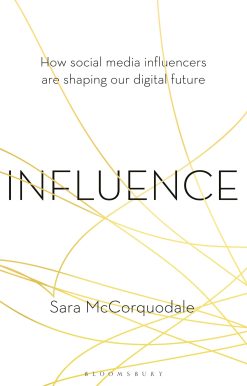How to Get Your Teen to Talk to You:
| by |
|---|
14.99 JOD
Please allow 2 – 5 weeks for delivery of this item
Description
Communication between parents and teens is at an all-time low. Besides marriage, this is the area where adults seem to struggle most. This user-friendly book will help readers get inside their teen’s mind, showing them what turns today’s teen on and off in terms of communication. Topics include: Ten Best Ways to Kill a Conversation, Language Barriers, Don’t Be Afraid to Say No, and Gender Differences and Communication. How to Get Your Teen to Talk to You is chock-full of fresh ideas and simple techniques that will encourage teens to open up!
Additional information
| Weight | 0.24 kg |
|---|---|
| Dimensions | 1.27 × 13.34 × 3.75 cm |
| by | |
| Format | Paperback |
| Language | |
| Pages | 220 |
| Publisher | |
| Year Published | 2003-1-21 |
| Imprint | |
| Publication City/Country | USA |
| ISBN 10 | 1601420323 |
| About The Author | Connie Grigsby, a University of Oklahoma graduate, enjoys pointing others towards life's bottom line. With warmth and humor, she exhorts others to refuse to be content with ho-hum living. Grigsby is a popular teacher and speaker involved in women's and youth ministries.Kent Julian is the national director of the Christian and Missionary Alliance's Alliance Youth. He is a highly sought-after speaker for teenage and parent audiences who also writes for youth ministry magazines such as Youthworker, Group, and Junior High Ministry. |
| Excerpt From Book | CHAPTER ONEHELP WANTED: PARENT OF TEENA Parental Job DescriptionThe trouble with being a parent isthat by the time you’re experienced…you’re unemployed.-AnonymousThe job description of a parent is to provide a secure environment thatchampions solid standards.Obviously, every kid at every age needs this. But with teens,such an environment provides fertile ground for them to respect andtrust us, look to us for guidance, and talk more honestly and openlywith us.So what does this haven of rest—with unconditional love as itsfoundation—look like?STANDARDSThis safe haven is framed with standards—the plumb line by whichlife is measured and the starting point for discerning right from wrong.These standards provide the structure for everyday life. And in manyways, they determine the very quality of life.Do you ever wonder which standards you should champion? Withthe glut of belief systems today, how do you know which standardsare best? Because the Bible is the ultimate and perfectsource of standards, let God’s Word be your guide.Parents’ actions speak volumes about their own standards. Becausehow we live—not what we say—is the clearest reflection of what webelieve. When we reflect strength of character and love to our children,we pass along those standards to them. And then, when they are nolonger living under our roof, those standards will be their NorthStar…pointing to abundant life.SECURITYThe solid standards mentioned above can only be developed in asecure and loving environment. Teenagers need a safe and loving placewhere they can develop their own beliefs, values, and identities.Are you providing this kind of environment? Does your teen feelsafe enough to discuss anything and everything with you?As a youth pastor, I (Kent) spend a lot of time talking toteenagers. Since recently moving back to Atlanta after several years, Ihave reconnected with some of the guys, now in their late twenties,who were in my first youth group fifteen years ago. One guy, whomI’ll call Jay, always had a great relationship with his mom and dad.When we recently met for coffee to catch up on old times, I asked himhow his parents were doing. He proceeded to go off for ten minutes,telling me how great they were and how much he respected them. As Idug deeper, I asked him what made his parents so great. He repliedwithout hesitation, “I’ve always been able to talk to them about anything.They love me unconditionally.”As Jay grabbed at the chance to talk about the secure environmenthis parents had created for him, I couldn’t help but think of a very differentstory—about a very different family. A few weeks earlier I haddone some catching up with another guy named Blake. As we sippedour coffee (yes, I love coffee), he asked my advice on a number ofissues. When I asked him what his parents’ take was on these things,he said, “We don’t talk about stuff like this. My family is detached relationally.”Amazing! Here was a young man, almost thirty years old, whostill didn’t feel safe enough with his parents to discuss issues that werevery important to him.Like we said…security is a big deal.SAFETYYou’ve probably heard the saying, “You can fool some of the peoplesome of the time, but you can’t fool all of the people all of the time.”But when it comes to relating to teens, we would have to say: “Youcan’t fool any of them ever!”Yes, when it comes to character, teens have a sixth sense. They cansmell a fake a mile away. If we don’t live what we say we believe, they’llsee right through us. Even more, they’ll never confide in us becausethey don’t feel they can trust us to safely guide them in the right way.But, if they can trust us to point them in the right direction, down apath we are already on ourselves, they will look to us for guidance.Bottom Line: Teens talk more honestly and openly in a secure homeenvironment where solid standards are championed.CHAPTER TWOAIN’T NOTHING LIKE THE REAL THING, BABY!Authenticity Is HugeActions speak louder than words, especially for parents and pastors.-Jenna, 15In May of 1990, my (Connie) dad had quintuple bypass surgery. Myyoungest daughter and I flew to Oklahoma to be with my parentswhile my husband and twins stayed back at our home in Omaha. Forthe next week we became extremely familiar with the hospital. In fact,when my cousin Jeanette asked my not quite two-year-old daughterwhere her new home was, she replied, “The hospital.”Since visiting hours were limited, we had a lot of time on ourhands and would often visit the hospital gift shop. On one such visit, aplaque on the wall caught my attention.Small and simply framed were these poignant words:Your walk talksAnd your talk talksBut your walk talks moreThan your talk talks.As we briefly mentioned earlier, teens are geniuses at zeroing in onhypocritical behavior. If we want our teens to talk to us and—far morethan that—if we want our teens to respect us, we need to make certainour walk and our talk line up.For instance, let’s say Johnny just turned thirteen. As he and hisdad walk toward the ticket booth at the movie theater, they both lookat the large sign indicating ticket prices are five dollars for children,ages three to twelve; and ten dollars for adults, ages thirteen and older.Dad and son look at each other and give the signal—they’ve done thisbefore. Johnny is thirteen, not twelve, but Dad buys him a childpricedticket anyway—both know they’ll spend the “saved” money onconcessions. Of course, the ticket agent doesn’t question the dadbecause he doesn’t look like someone who would lie.Dad may have thought he saved five dollars, and Johnny may behappy with his extra large popcorn and soda. But something of muchgreater value than a measly five dollars is at stake here: Johnny knows he’sthirteen. Dad’s probably told him that lying and stealing are wrong, butthis little lesson in lying, cheating, and stealing says just the opposite.Johnny may not know what the word integrity means, but in hisgut he knows that the deception was wrong…and he knows his dadknows it too.There really isn’t any such thing as a little white lie. Involving childrenin lying, cheating, and stealing is always a very big thing. And yetmany parents don’t even think twice about telling their children to tell acaller that they’re not home—when they are! Or telling them to tell theirteachers they were sick—when in fact you extended your family vacation.On the one hand, we ask our kids to tell lies when it’s convenientfor us, but then on that same day we ground them for lying to uswhen it’s convenient for them.Talk about mixed messages! No wonder they don’t bother talkingto us.So this brings us to the question: Who wants to talk over the issues oflife with a thief and a liar? Not anyone we know. Sure, our kids may stilltalk to us, but it won’t be about anything of much depth or significance.Even if we are honest most of the time, our kids will still noticethe couple of times we shade the truth to our own advantage…andthey will wonder why we preach one message but live a different one.Kids are smart. If we can’t be trusted to be honest with a five dollardifference in the price of a ticket, why should they trust us with what isnear and dear to their teenage souls?Bottom Line: Your character shouldn’t be “for sale.” |
Only logged in customers who have purchased this product may leave a review.
Related products
-
On backorder 2-5 Weeks to Arrive
20.00 JOD -
Available To Order
10.99 JOD -
On backorder 2-5 Weeks to Arrive
8.99 JOD -
Low stock
55.00 JOD






Reviews
There are no reviews yet.